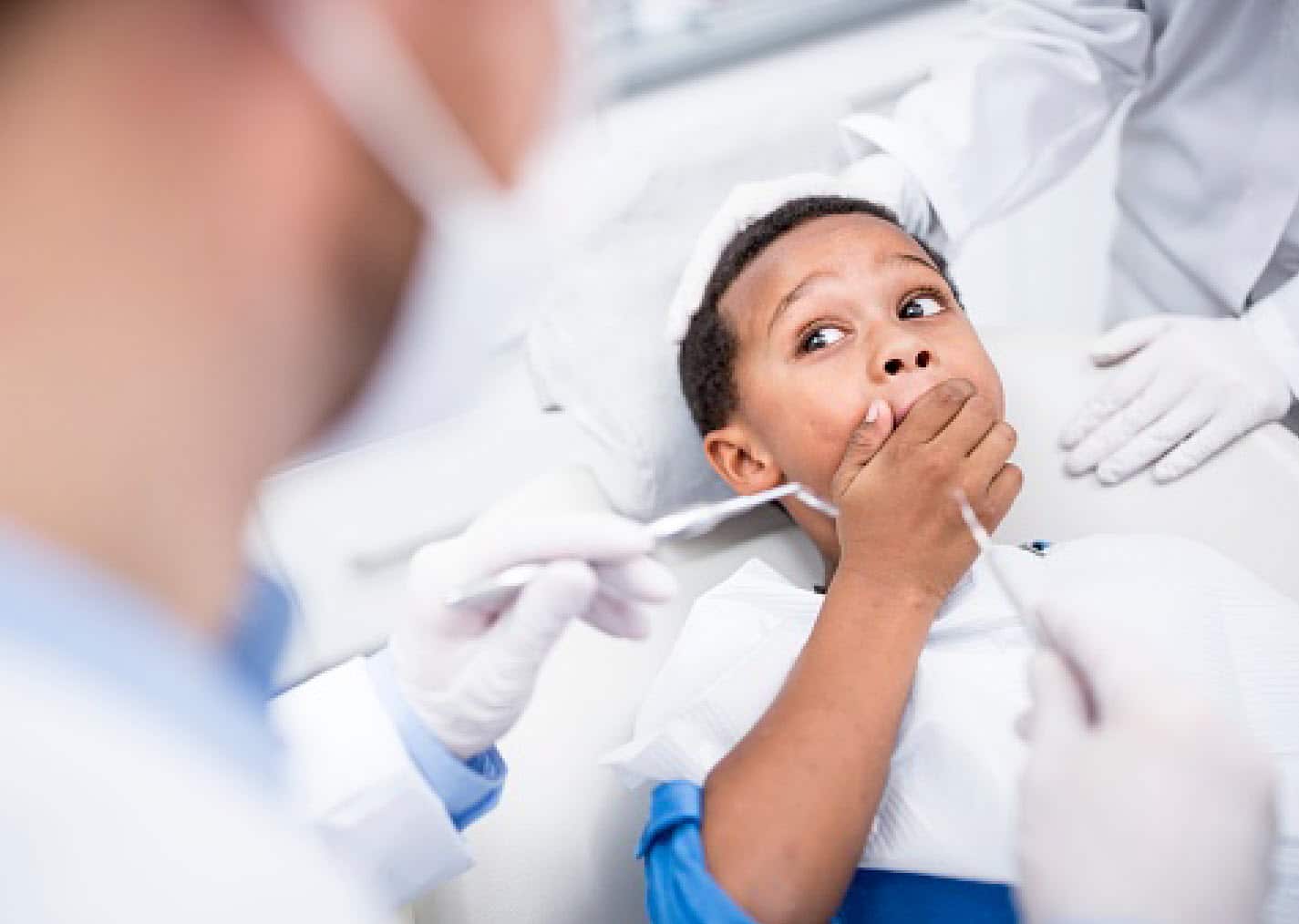
What are common dental concerns in children with special needs, and how can they be addressed?
Children with special needs often face unique challenges when it comes to dental care. These can include difficulties with oral hygiene, increased risk of dental decay, and challenges cooperating during kids dental visits. Here’s a simple breakdown:
- Difficulty with Oral Hygiene: Children with certain physical, developmental, or sensory conditions might find brushing and flossing challenging. This can lead to plaque build-up, gum disease, and cavities.
- Increased Risk of Dental Decay: Many special needs children might have diets that include soft foods or medications that are high in sugar, contributing to a higher risk of cavities. Some medications can also reduce saliva flow, making the mouth more prone to decay.
- Challenges During Dental Visits: For some children with special needs, the unfamiliar environment of a dental office can be overwhelming. This includes children with anxiety disorders, autism spectrum disorders, or those who have difficulty staying still.
Addressing These Concerns:
The goal is to ensure that every child gets the dental care they need in a manner that’s as comfortable and stress-free as possible. Here’s how these concerns can be effectively addressed:
- Preventive Care: Regular dental check-ups are crucial. This isn’t just about spotting cavities early but also involves professional cleaning and applying protective treatments like fluoride varnish or dental sealants to protect against decay.
- Customised Oral Hygiene Plans: Specialist Paediatric Dentists can work with parents and caregivers to create tailored oral hygiene plans. This can include recommendations for special toothbrushes, tips for making brushing and flossing easier, and advice on diet to reduce the risk of decay.
- Sleep Dentistry (General Anaesthesia): For children who find dental visits particularly challenging, sleep dentistry can be a game-changer. By using general anaesthesia, the child is asleep during the dental procedure. This approach is used for children who can’t tolerate dental work in a conventional setting, ensuring they receive the necessary dental care without the stress or fear a dental visit might otherwise cause.
It’s important to work closely with a kids dental specialist dentist who specialises in dental care for children with special needs. These professionals understand the unique challenges these children face and can provide care in a compassionate, understanding manner. Plus, they can coordinate with other healthcare providers as needed to ensure comprehensive care.
In summary, tackling common dental concerns in children with special needs involves a combination of preventive care, customised oral hygiene strategies, and, when necessary, sleep dentistry to ensure a positive and non-traumatic dental care experience.

What resources are available to assist parents in teaching their children about dental care and preparing them for dentist visits?
Teaching children about dental care and preparing them for dentist visits, especially for those with ADHD (Attention Deficit Hyperactivity Disorder) and ASD (Autism Spectrum Disorder), requires a thoughtful approach.
Resources for Dental Care Education:
- Visual Learning Materials: According to Dr Soha who provides Special needs Kids Dental Treatments in Brisbane, Children, particularly those with ASD, may benefit significantly from visual aids. Look for colourful books or videos that focus on dental hygiene, explaining the process in simple, engaging ways. These materials can introduce the concept of dental care and the importance of keeping teeth clean in a format they can easily understand.
- Social Stories: These are short descriptions of a particular situation, event, or activity, which include specific information about what to expect in that situation and why. Creating social stories about visiting the dentist can help prepare children by setting clear expectations, Dr Ellie, a specialist Paediatric Dentist in Brisbane, says.
- Apps and Games: There are several educational apps designed to teach children about dental care through interactive games. These can be particularly appealing for children with ADHD by providing an engaging way to learn about brushing and flossing, as well as what happens during a dentist visit, Dr Roya (South Perth Dentist) says.
- Sensory-Friendly Dental Practices: Some kids dental specialists specialise in treating children with special needs and offer a sensory-friendly environment. This can include low lighting, quiet rooms, and the allowance of comfort objects. These practices often have staff trained to work with children who have additional needs, making the experience as comfortable as possible.
Preparing for Dentist Visits:
- Visit Preparation: Before a dental visit, familiarise your child with the process. This can be done through reading social stories, watching videos about dentist visits, or even playing pretend dentist at home. Familiarity can reduce dental anxiety.
- Communication with Your Dentist: Before your appointment, communicate with the dental office about your child’s needs and preferences. Inform them of any sensory sensitivities or concerns your child may have. This allows the dental team to prepare and adapt their approach accordingly.
- Gradual Introduction: For some children, particularly those with severe anxiety or sensory sensitivities, gradual desensitization might be necessary. This can start with a simple visit to the kids dentist to meet the staff, followed by sitting in the dental chair without any procedures, and slowly building up to a full visit.
- Sleep Dentistry: According to Brisbane Dental Sleep Clinic, for children who cannot tolerate dental work while awake due to anxiety, sensory issues, or inability to stay still, sleep dentistry under general anaesthesia may be an option. This should be discussed with your dentist to understand the risks and benefits (also see sleep dentistry for children).
In summary, preparing your child for dental care and visits involves utilising educational resources tailored to their learning style, setting clear expectations, and working closely with dental professionals to ensure a positive experience. Remember, an early and positive introduction to dental care can lay the foundation for lifelong oral health.

What modifications can be made to make toothbrushing easier and more effective for children with special needs?
Here’s how we can do this:
- Use of Adapted Toothbrushes: There are toothbrushes available that are specifically designed for children with special needs. These might have larger handles to make them easier to grip or be shaped in a way that makes them more comfortable for a child who struggles with fine motor skills.
- Electric Toothbrushes: Electric toothbrushes can be particularly beneficial because they can reduce the need for manual dexterity and provide a more consistent cleaning action. Some electric toothbrushes also come with timers or music to help keep the child engaged for the recommended two minutes of brushing.
- Toothbrushing Apps: There are apps available that turn toothbrushing into a game or interactive activity, which can be especially engaging for children with ADHD. These apps often use visuals and rewards to motivate children to brush properly and for the right amount of time.
- Visual Schedules: For children with ASD, using a visual schedule that includes toothbrushing can help incorporate the activity into their daily routine, making it more predictable and less anxiety-inducing.
- Sensory Adaptations: Some children may be sensitive to the sensation of brushing or the taste of toothpaste. In these cases, using a softer toothbrush, sensory-friendly toothpaste, or even just water at first can help ease them into the habit of brushing.
- Practising Outside the Bathroom: For children who may have negative associations with the bathroom, practising brushing in a neutral space with a dry toothbrush can help them get used to the motions in a less stressful environment.
- Professional Guidance: Consulting with a paediatric dentist who specialises in special needs dentistry can provide personalized recommendations based on the child’s specific challenges and needs.
By implementing these modifications, we aim to make toothbrushing a more manageable and positive experience for children with special needs, ultimately supporting their oral health and well-being.